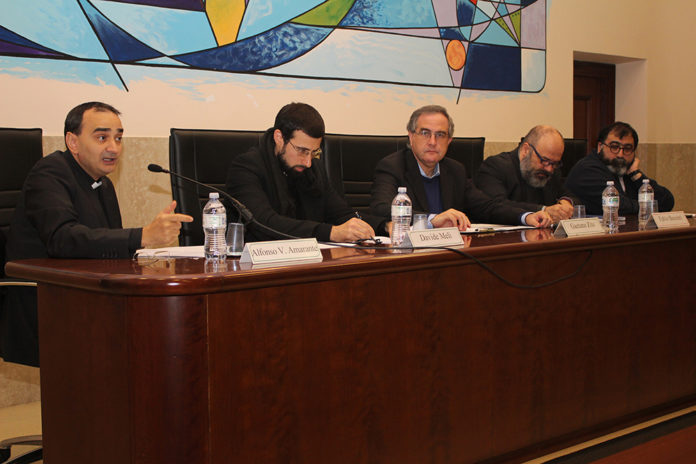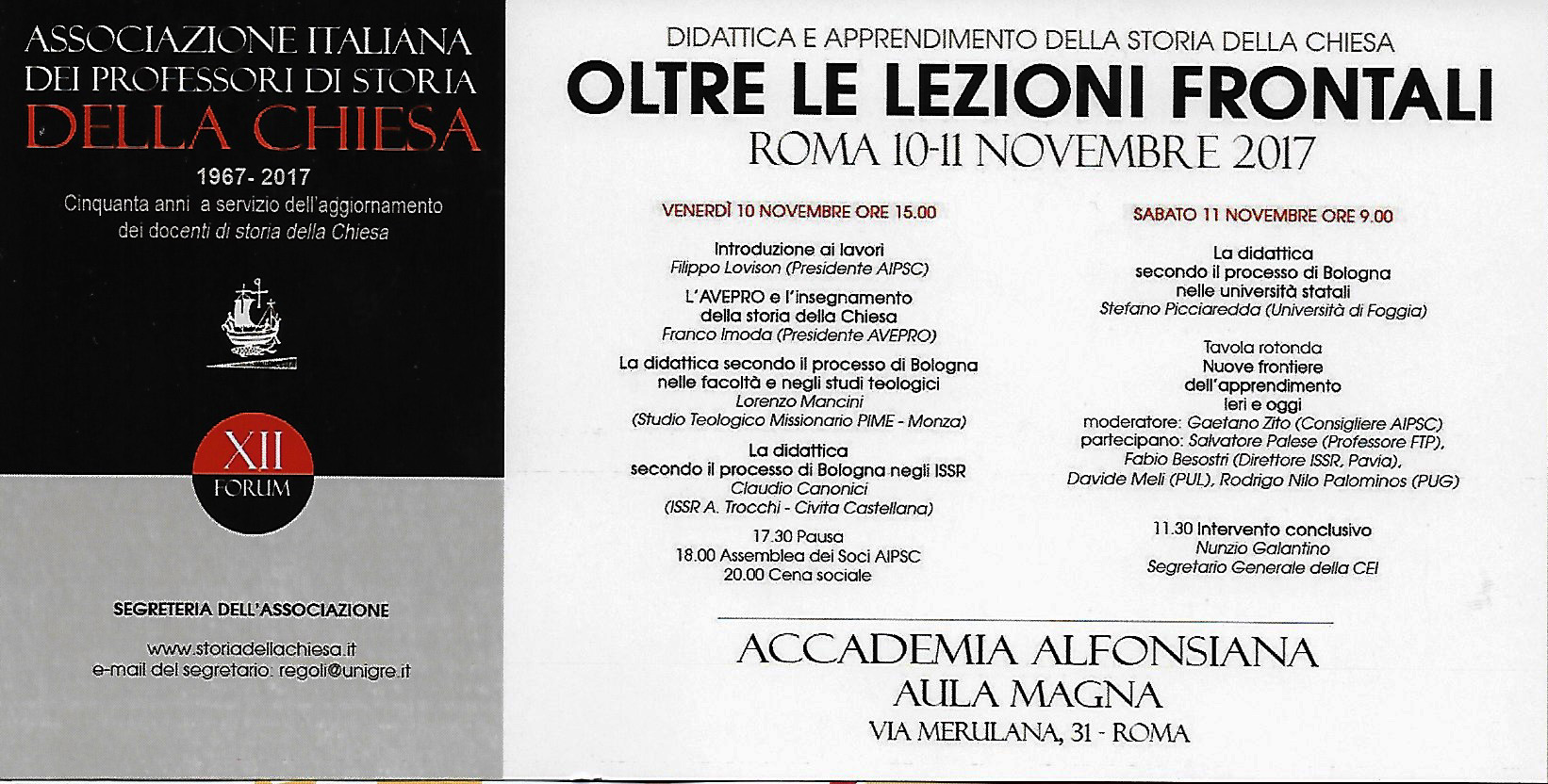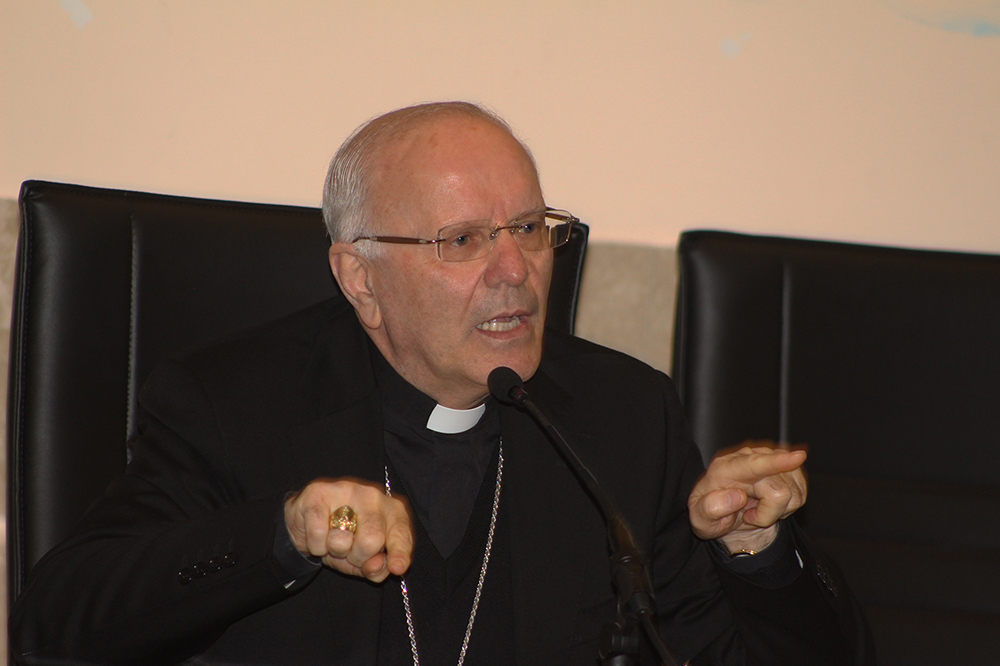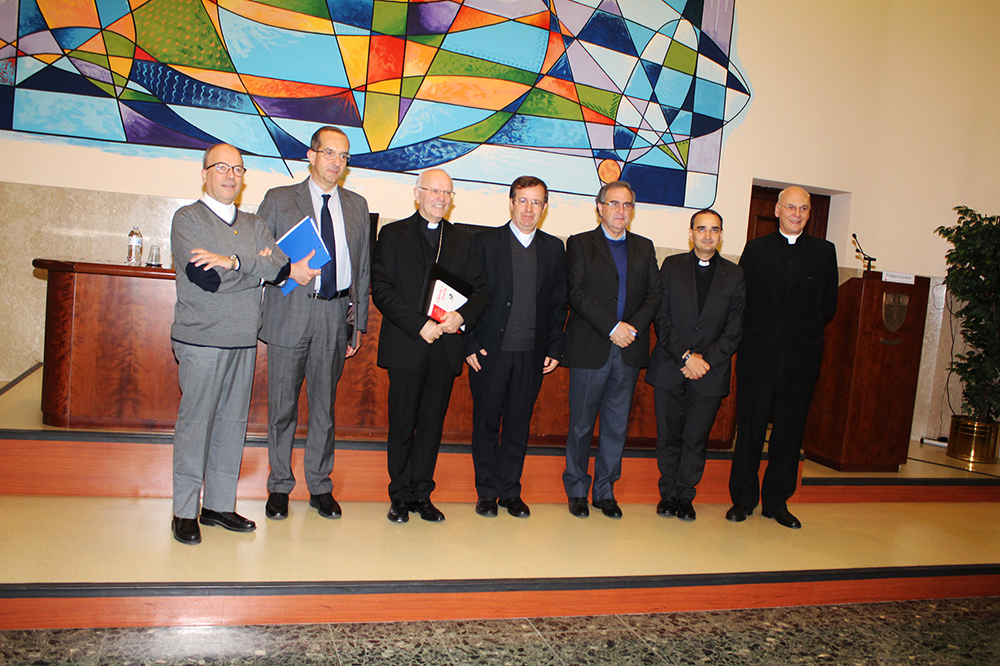On the 10th and 11th of November 2017, the XII forum of the Italian Association of Church History Professors (AIPSC) was held at the Alfonsian Academy in Rome, which for the second consecutive time came back to the teaching question by proposing Participants’ reports and contributions on “Teaching and Learning of Church History beyond Frontal Lectures”.
The work was introduced by the president of AIPSC Filippo Lovison and moderated by Sr. Grazia Loparco, professor at the Pontifical Athenaeum “Auxilium” (first day) and Giovanni Grosso (second day). They have conducted their presentations, followed by the debate, Lorenzo Mancini (teacher at PIME’s Theological Missionary School, Monza) and Claudio Canonici (director of the ISRR, Civita Castellana).
Speakers in the development of their interventions have kept the spirit and normative evolution of the Bologna process in the background. They also discussed within the forum itself with authorities such as Fr. Franco Imoda, President of AVEPRO, to evaluate together the current advances and difficulties of the journey undertaken for faculties and theological studies, higher education institutes of religious sciences as well, but also for state universities as emerged from the report of prof. Stefano Picciaredda of the University of Foggia.
The speakers then wanted to put these reflections in the discipline’s specifics, taking in some classical reflections on the epistemological status of the subject, but also by welcoming the new challenges posed by globalization (especially with regard to the internationalization of students) and access to new teaching aids that had already been reflected in the 2016 forum.
The concluding round table, moderated by Gaetano Zito (AIPSC Councillor), was attended by Alfonso Amarante (Professor of Alfonsian Academy), Fabio Besostri (ISSR director Pavia) and two PhD students (Davide Meli PUL and Rodrigo Nilo Palominos PUG) and they also noted the main points on the situation from which the reflections emerged.
By the intervention of the Secretary General of CEI, Msgr. Nunzio Galantino the work of the forum was concluded.
The developed themes push for an ever-greater integration between research and teaching, putting the pupil in the focus of teaching and remembering that training lasts forever.
These topics are the subject of reflection by all the professors of the Academy. As a teaching staff from the Academy since last September, we have started to reflect together on this trace that the “Process of Bologna” to which the Holy See has adhered to, invites us to follow with creativity, experience and courage.
Lorenzo Mancini









